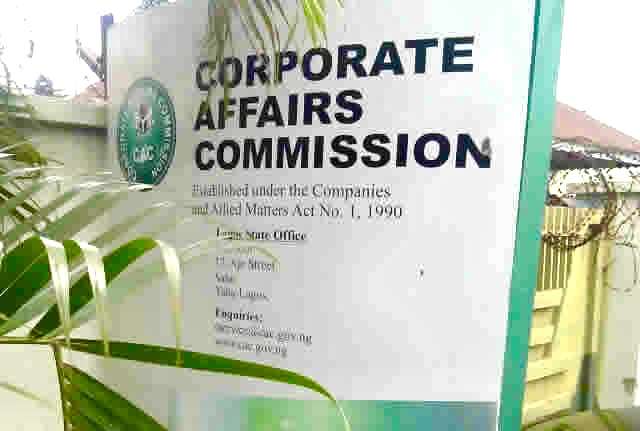The CAC’s AI registration portal has come under scrutiny after the Corporate Affairs Commission claimed it processed 11,000 company applications in a single day.
While the commission touts the rollout as a digital milestone, users across Nigeria are contesting the claims, citing stalled applications, unverified payments, and technical breakdowns.
According to a post shared on X (formerly Twitter) on Sunday, the commission said it processed 8,000 name reservations on Friday, July 16 alone, an achievement it described as unprecedented.
“The ICRP has so far been speedily responding to applications as it now treats over 11,000 cases per day,” the commission said. “Interestingly, as of Friday, July 16, 2025, 8,000 Name Reservations were received and processed. This is no doubt a feat that hitherto requires a minimum of 2 weeks to complete.”
What This Means
The development comes weeks after the CAC commenced a system-wide migration from its legacy Company Registration Portal (CRP) to a new platform called the Intelligent Company Registration Portal (iCRP).
The iCRP is an AI-integrated system that promises near-instant name reservations, one-hour company registration, and automated tax identification number (TIN) generation.
According to the CAC, the iCRP, launched officially on July 1, is designed to simplify Nigeria’s company registration process through AI automation and a more user-friendly interface.
The commission said the platform would eliminate bottlenecks and accelerate filings for new and existing businesses.
CAC’s AI Registration Portal: A Digital Leap or a Stumbling Rollout?
But since the launch, many users say the system has failed to deliver on its promise.
Multiple business owners and CAC-accredited agents said basic services such as name approvals, certificate generation, and TIN issuance have either stalled or become entirely inaccessible.
“I made a payment for a business name registration and the money was deducted, but it still hasn’t been verified on the portal,” said Ibrahim Jumat, a user based in Lagos. “I haven’t gotten a response to emails I submitted.”
In several instances, new companies incorporated through the portal could not generate their TINs, a crucial requirement for opening business bank accounts and filing taxes.
No Clear Timeline, No Contingency Plan
The CAC’s AI registration portal is part of a broader effort by the Nigerian government to digitise public services and improve ease of doing business.
But unlike other agency transitions, such as the Nigeria Immigration Service’s 72-hour passport portal upgrade, experts say, the CAC has offered no clear recovery timeline or fallback options for affected users.
The lack of transparent communication has fuelled frustration among many Nigerians relying on the service to complete time-sensitive transactions.
“Despite issuing a brief system migration notice ahead of the launch, the commission has remained largely silent in the face of rising complaints,” Fadekemi Fasasi, a CAC-accredited agent.
Market Statistics: Why CAC’s Portal Matters
Nigeria’s small and medium-sized enterprises (SMEs) make up approximately 96% of all businesses in the country, contributing 48% to the country’s national GDP.
The ease with which these businesses can formalise operations, by registering with the CAC, directly influences their access to credit, contracts, and tax compliance mechanisms.
Nigeria’s tech startup ecosystem also relies heavily on fast incorporation timelines. The CAC’s performance is often seen as a barometer for Nigeria’s overall business environment.
In this context, experts say the success or failure of CAC serves as a direct signal to both local entrepreneurs and global investors watching Nigeria’s digital infrastructure.
A Test of Trust in Nigeria’s Digital Reforms
The CAC’s AI registration portal is central to Nigeria’s formal economy, particularly for startups, small business owners, and investors requiring statutory documentation.
While the use of AI and automation in public service delivery is welcome, experts say execution must be supported by a clear rollout strategy, responsive support systems, and robust user testing.
Without those, they warn, the system risks eroding public trust and reversing the digital gains made in recent years.
“This kind of rollout needs to prioritise stability,” said Onikoyi Asisat, a Lagos-based corporate lawyer. “When the system goes down, it means people lose deals, miss bank deadlines, and are unable to access formal economic systems. That has real consequences.”
Industry leaders added that if the CAC cannot deliver dependable services or effectively manage transitions, it risks deepening skepticism about the government’s broader digital transformation agenda.
Talking Points
The Corporate Affairs Commission’s claim of registering 11,000 companies in a single day signals a bold ambition to digitise Nigeria’s company formation process at scale.
However, for many users, the reality tells a different story. Since the launch of the AI-powered platform, multiple business owners and CAC-accredited agents have reported technical breakdowns, unverified payments, and delayed documentation.
At Techparley, we see this not just as a platform issue, but as a test of Nigeria’s broader digital transformation agenda. Any disruption can have real-time economic consequences, from delayed financing to missed contract deadlines.
While CAC’s use of automation and AI is commendable, execution must match ambition. System rollouts of this magnitude require not just robust engineering, but contingency planning, responsive user support, and transparent communication.
If Nigeria’s public service wants to embrace digital tools, it must also embrace the accountability that comes with them. For CAC, this means fixing the gaps in its delivery. Anything less jeopardises the credibility of future tech reforms.





